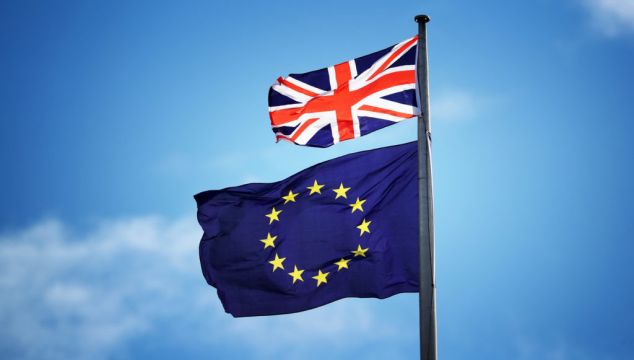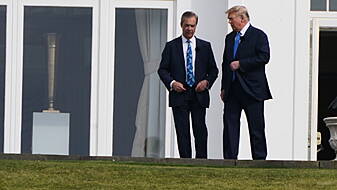Britain outlined proposed legislation on Tuesday to unilaterally scrap some post-Brexit trade rules for Northern Ireland, risking a diplomatic crisis and the threat of a trade war with the European Union.
The two sides have been trying for months to overcome a deadlock over the Northern Ireland Protocol, which sets the trading rules for the British-ruled region that London agreed before it left the EU but now says are unworkable.
Below are some of the changes Britain plans to include in the legislation...
1. Checks on goods
When Britain left the EU, British prime minister Boris Johnson agreed to a deal that effectively left Northern Ireland in the bloc's customs union because of its open border with EU member Ireland, creating a customs border with Britain.
Britain now wants to reduce the number of checks on goods travelling from Britain to Northern Ireland.
The government is proposing to set up a "green lane" for vehicles carrying goods that are solely intended to go from Britain to Northern Ireland. This will involve trusted trader programmes and real-time data sharing with the EU.
A separate "red lane" with full checks will be created for goods that could end up in Ireland and the EU.
This is designed to reduce the paperwork facing companies that have said they will be unable to provide a full range of products to Northern Ireland because the number of checks are too onerous.
The government said businesses will choose between meeting UK or EU standards in a new dual regulatory regime, and there will be stricter penalties on any company that fails to comply with the new trading system.
2. Tax
In March, Britain's finance minister Rishi Sunak announced plans to cut value-added tax when having solar panels, insulation and heat pumps installed.
But the government was unable to apply that policy to Northern Ireland because the protocol means all goods in Northern Ireland have to follow the EU's VAT rules.
The government wants to scrap this rule, saying the British-ruled province is being unfairly treated and should be able to benefit from government assistance.
3. European Court of Justice
Britain wants to end the role of the European Court of Justice as the sole arbiter of disputes with the EU over the functioning of the protocol.
"Our solution is to have an arbitration mechanism in place ...rather than having the ECJ as the final arbiter," British foreign secretary Liz Truss told parliament.
More details will be published in the coming weeks about how this could work, a government official said.
So what has the response been?
In the Republic, Minister for Foreign Affairs Simon Coveney said he “deeply regrets” the British government’s decision to disapply elements of the protocol.
The Minister said in a statement that such unilateral action “is damaging to trust” and will only “make it more challenging to find solutions to the genuine concerns” that people in Northern Ireland have about how the protocol is working.

“This unilateral action is contrary to the wishes of people and business in Northern Ireland,” he said.
In Northern Ireland, leader of the DUP Jeffrey Donaldson said the move was a “welcome if overdue step”.
However he stressed that his party, which has refused to return to a devolved government in Northern Ireland in protest over the Irish Sea trading arrangements, needed to see action rather than words from London.
He said the DUP will take a “graduated and cautious” approach to re-engaging with Stormont power-sharing depending on the progress of legislation to override parts of the Brexit protocol.







